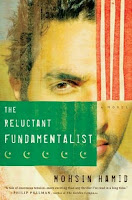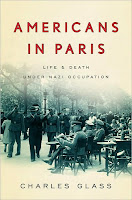Last month, The New Yorker ran a full-page piece on Stephen E. Ambrose, American historian extraordinaire and author, most famously, of Band of Brothers. (Yes, that one.) Ambrose, whom the reporter describes (not inaccurately) as “America’s most famous and popular historian,” appears to have joined the long list of respected writers and academics whose zeal for sculpting a superior narrative was undermined by the dubious methods they used along the way. As Dwight D. Eisenhower’s biographer, Ambrose, who died in 2002, took pride in the “hundreds and hundreds of hours” he spent with the president over the course of five years.
As it turns out, these hours turned out to be just as phantasmal as, say, weapons of mass destruction in Iraq, or an honest politician. According to The New Yorker article, the deputy director of Eisenhower’s presidential library and museum recently discovered the president’s schedule, which revealed that “Eisenhower saw Ambrose only three times, for a total of less than five hours. The two men were never alone together.” In an understatement, the deputy secretary mused, “[Eisenhower] simply didn’t see that much of Stephen Ambrose.”
Notwithstanding the historian’s posthumous humiliation, it is quite clear just how he ascended to the zenith of American history-telling. In the 1997 eighth revised edition of Rise to Globalism: American Foreign Policy Since 1938, Ambrose joined with Douglas G. Brinkley (ironically, the Stephen E. Ambrose Professor of History at the University of New Orleans at the time) in recounting the events, decisions, and people that shaped the course of the twentieth century and set the standard for the one following.
Reading a pre-9/11 history book feels a bit fantastical at times, as when the introduction to the book presciently concludes, “America in the 1990s was richer and more powerful — and more vulnerable — than at any other time in her history.” In general, however, Rise to Globalism is every bit the thorough (although not detached) retrospective one would expect from a titan in the field such as Stephen Ambrose. Somewhat surprisingly, the most interesting nuggets are not the minutiae of political decision-making or military strategies but Brinkley and Ambrose’s perspectives on them.
As one clear example, it is quite obvious from the outset of chapter fifteen, Reagan and the Evil Empire, that the authors are not particularly fond of President #40. This is made abundantly clear in recounting the American involvement in the Israeli-Lebanese war in the early 1980s. Whether describing Reagan as “[blundering] in Lebanon as badly as Carter had blundered in Iran” or claiming that “no one, most of all Reagan himself, ever seemed to be clear on the purpose of that involvement,” Rise to Globalism is unapologetically ambivalent at best about the Reagan administration.
Of course, this is a perfectly valid evaluation, and one that helpfully reminds the reader that a history textbook this is not. (Of course, recent developments in the Texas public school curriculum raise doubts as to whether some history textbooks are even history textbooks. But I digress.) The authors’ perspectives are not partisan, it should be noted; of President Jimmy Carter, they praise his emphasis on human rights, which “struck a responsive chord among the oppressed everywhere,” but ultimately concede that “all the goals were wildly impractical and none were achieved.”
Especially fascinating is the nuanced tale of the Vietnam War, in which the reader is taken beyond soldiers, fighting, politicians, and election campaigns and into a deeper look at the underlying shifts in national societies themselves. Of course, these changes cannot be understood in isolation, and Ambrose and Brinkley deftly portray the interacting elements of politics and public sentiment. (The American fascination with the atomic bomb’s potential to establish permanent world hegemony is but one of several intriguing developments explored within this context.)
At times, Rise to Globalism is unforgiving in its assessments of American arrogance and impulsiveness, a tendency that lends credibility to their praise at other moments. (Commenting on the American commitment to Vietnam, despite elected officials’ many reassurances that the United States was not “fighting a white man’s war against Asians,” the authors ponder, “Why had the Americans not heeded their own warnings? Because they were cocky, overconfident, sure of themselves, certain that they could win at a bearable cost, and that in the process they would turn back the Communist tide in Asia.”) A similar attention to detail is displayed in coverage of the Cold War; perhaps most remarkable is the illuminating fact that, strenuous attempts at differentiation notwithstanding, most American presidents of the era closely mimicked their immediate predecessors’ foreign policies.
Despite having been written in the late 1990s, at a time when American influence could hardly have been more pervasive, Rise to Globalism is remarkably circumspect in its prognostications for the future. The book ends as President Bill Clinton’s second term begins, a period of unprecedented peace and prosperity for the West; and yet, in the last sentence, the authors caution that “no one would claim that he had wrought a global utopia of free-market democracies.” If Stephen Ambrose were alive today, a sequel, or at least an updated edition, would be in order. The times, they are a-changin’, but Rise to Globalism‘s relative old age has yet to relegate it to the dusty side of the bookshelf.








